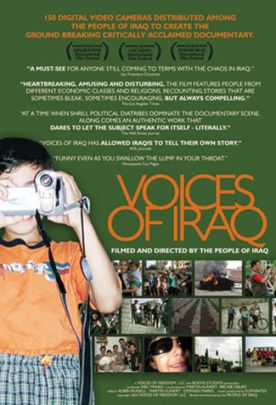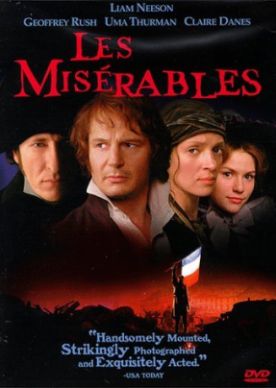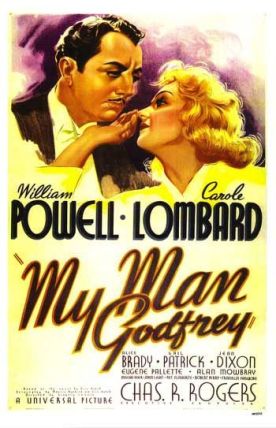Voices of Iraq
At the end of the remarkable Voices of Iraq there is a revealing moment. In order to go out on a high note, the film shows a young woman saying “many things in the past barred our future; now there is hope.” Then a number of people talk about their hopes including two adorable children who tell the camera what they want to be when they grow up. One says “Engineer,” but the other is suddenly tongue-tied. As the camera zooms in on him, his friend whispers: “Say ‘doctor’.”
“Doctor!” says the other, instantly obedient to the prompt.
The film-makers in this case are the editors, Robin Russell, Martin Kunert and Stephen Mark, who with producers Eric Manes and Archie Drury have shaped a film said to be “filmed and directed by the people of Iraq.” Drury, an ex-Marine, distributed 150 video cameras loaded with tape to a selection of ordinary Iraqis who were asked to pass them on to others and return them when the tapes were exposed. To a remarkable degree, this is just what they did, and the resulting picture of life in Iraq today is very different from what those whose expectations have been shaped by the media might expect.
For the editors have put the episode of the two boys in its place of prominence not only because it is cute but also because it reminds us that what cameras always record — even cameras in the hands of “the people of Iraq” — is a performance. In another vignette, a serious looking man holding his small daughter is speaking to the camera of his and others’ feelings about life in Iraq today: “We resent the current situation,” he says, putting his serious face on — then he breaks into a grin. “And she just farted.” Once the camera is turned on us, we all give prospective viewers what we think they’ll like to watch. This doesn’t mean that it isn’t true. The shy boy might really have wanted to be a doctor, and his friend was only reminding him. But people tell the camera what they want others to believe, true or not, and viewers need to be constantly alert, especially with a contentious subject like Iraq, to the possibility that they are being manipulated.
All credit, then, to Voices of Iraq for pointing out this essential fact, both at its own expense and at that of the establishment media. They remind us that the latter are so well-practised at hiding what these amateurs routinely reveal that masses of otherwise media-savvy Americans still believe that the carefully shaped narratives of the mainstream media and especially the network news is a picture of the real Iraq. Voices knocks this idea on the head at the beginning. One of their videocam-equipped Iraqis shows us the scene of a car bomb in Sadr City. Some people are milling about until “the journalists” arrive under armored escort. As the network cameras come out, the crowd suddenly turns into a shouting band of protestors, signs at the ready. The media get shots of this supposed “unrest” taking place around the scene of the burning car and drive away — whereupon the protestors quietly leave too.
In the same spirit, the film-makers indulge themselves throughout in moments of delicious irony with the help of portentous headlines taken from the American and international press. Thus we see the lugubrious New York Times head, “Iraq may survive, but the dream is dead,” juxtaposed with scenes of rejoicing by graduating students at Baghdad University. My favorite of these little vignettes was the Los Angeles Times screamer, “Photos of naked Iraqi prisoners outrage Arabs,” which was used to introduce scenes of a lunch-time discussion among a group of Saddam Hussein’s torture victims, all of them mightily amused at the contrast between what they endured and the latest “horror story” out of Abu Ghraib. The Americans, says one of them, “have the nice torture.”
It is also natural for them to observe that the latest Abu Ghraib victims “were Saddam’s henchmen” — with whom they could hardly be expected to have much sympathy. “All Iraqis are human and wishing to be prisoners in Abu Ghraib prison,” says another, wondering what kind of torture it is when “a woman undresses you and touches your penis.” Such remarks are delivered with a ribald humor that no American journalist, right or left, would dare to suggest was even possible in the circumstances. Yet it makes them instantly believable. So too does the gallows humor of the man who remembers having been in Abu Ghraib under Saddam. “The cells were built to hold six people,” he says. “Saddam threw forty into them. The man who built the prison was in my cell. ‘Why didn’t you build the rooms bigger?’ I asked him. ‘I didn’t know I would be imprisoned here!’ he said.”
But perhaps the most profound statement to emerge from the party comes when one of the other luncheon guests makes the point that “This is the first time in Iraqi history that a strong government has apologized about anything.”
Throughout the film there are such moments of wisdom and humor and pathos. There are also clips of torture and execution from the Saddam days and recruiting videos on behalf of the insurgents. Among the Iraqis who used Mr Drury’s cameras there are no Saddam sympathizers, though several of them say they would prefer to go back to Saddam rather than endure the fears and uncertainties of the insurgency. But on the whole we are left with a sense of hopefulness as well as admiration for the Iraqi people. Doubtless it was the purpose of those editors with 400 hours of tape to choose from to create this impression, but they are open enough about it and show us enough contrary views that it is easy to trust them more than we ought to do the mainstream media with their uniformly pessimistic point of view.
At the least, anyone contemplating a vote against President Bush on account of the alleged “mess” he has made in Iraq, should see this film first. It allows us to believe with reasonable confidence that, though things there are messy in a lot of ways, the country coming into existence is very far from being a mess. Above all, it lends an unexpected credence to the Bush administration’s view that rooting out terrorism depends on the democratization of the Middle East. Coming from Paul Wolfowitz we might doubt it, but these Iraqis certainly seem to believe that the fury of the insurgency in their midst is owing to a well-founded fear among undemocratic forces — including not only the jihadists but authoritarian governments throughout the Arab world — that the success of Iraqi democracy will mean the end of them. It seems that, after all, there are more ways to connect Iraq to 9/11 than by supposing Saddam Hussein and Mohammed Atta were in cahoots.
Discover more from James Bowman
Subscribe to get the latest posts to your email.








